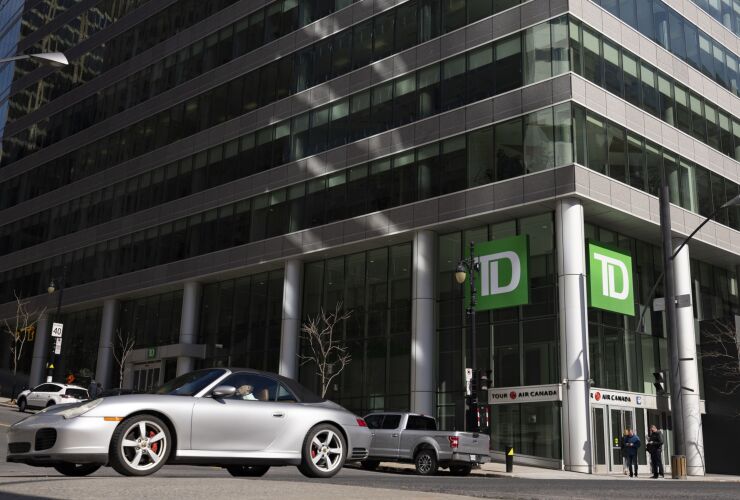
A veteran Canadian bank analyst says Toronto-Dominion Bank's role in an alleged money-laundering scheme has made the "worst-case scenario" more likely — a huge fine for the lender and years of restrictions on its U.S. growth.
That's in addition to another case in which one of the bank's New Jersey branch employees was charged with accepting bribes to facilitate the laundering of drug money.
"With the bank allegedly a focal institution in a drug money-laundering scheme, the worst-case scenario has become more likely with TD potentially entering a lost decade," Jefferies analyst John Aiken said in note to clients Monday. "Growth in the U.S. will likely be constrained and the timeline for a fix is extended by several years."
Toronto-Dominion plunged into the U.S. regional banking market nearly two decades ago when it acquired a majority stake in Banknorth Group, and it has been a serial acquirer since, focusing on markets in the Eastern U.S. But the bank has been sidelined by its regulatory woes. A year ago, it
The bank announced an initial $450 million provision for regulatory penalties last week before the Journal's report and said there's more to come, as there are investigations from multiple regulators. The "simple math" implies Canada's second-largest bank will have to pay $2 billion, Aiken said.
"However, as there is absolutely no certainty around how the regulators are going to proceed, the standard deviations around this estimate is likely measured in billions, rather than hundreds of millions," Aiken wrote.
Toronto-Dominion has lost about C$10 billion ($7.3 billion) in market capitalization since the Journal reported the connection to the drug-money case on Thursday. Friday's 5.8% drop in the share price in Toronto was the worst since March 2020.
The shares rebounded a bit on Monday, rising about 1% to C$75.51 as of 11:39 a.m. in Toronto.
The apparent compliance failures at TD may cast a shadow over the management team and lead shareholders to demand a shuffle, Aiken added. There's already been a change at the top of its U.S. retail division, with Leo Salom taking over that role in 2022. Few members of the executive committee members have been in their jobs for a significant period of time, Aiken said.
"Criminals relentlessly target financial institutions to launder money, and TD has a responsibility and an obligation to thwart their illegal activity," Chief Executive Officer Bharat Masrani said in a statement late Friday. "I regret that there were serious instances where the bank's [anti-money-laundering] program fell short and did not effectively monitor, detect, report or respond. This is unacceptable and not in line with our values."
Masrani said the bank has already invested hundreds of millions in enhancements to its U.S. and global anti-money-laundering controls, which has included hiring hundreds of new employees and technology investments.
Keefe Bruyette & Woods analyst Mike Rizvanovic cut his price target to C$88 from C$92, adding that while last week's sell-off appeared to be overdone, the stock will take time to recover.
Bank of Nova Scotia analyst Meny Grauman noted that there's likely too much bad news being priced into shares.
"The overhang on the stock is likely to remain a reality for the foreseeable future, but we believe that last week's sell-off simply went too far," Grauman said in a note.
"This business may very well be growth constrained for some time, but based on what we know there is simply no basis to believe that TD's U.S. earnings power has totally evaporated."





